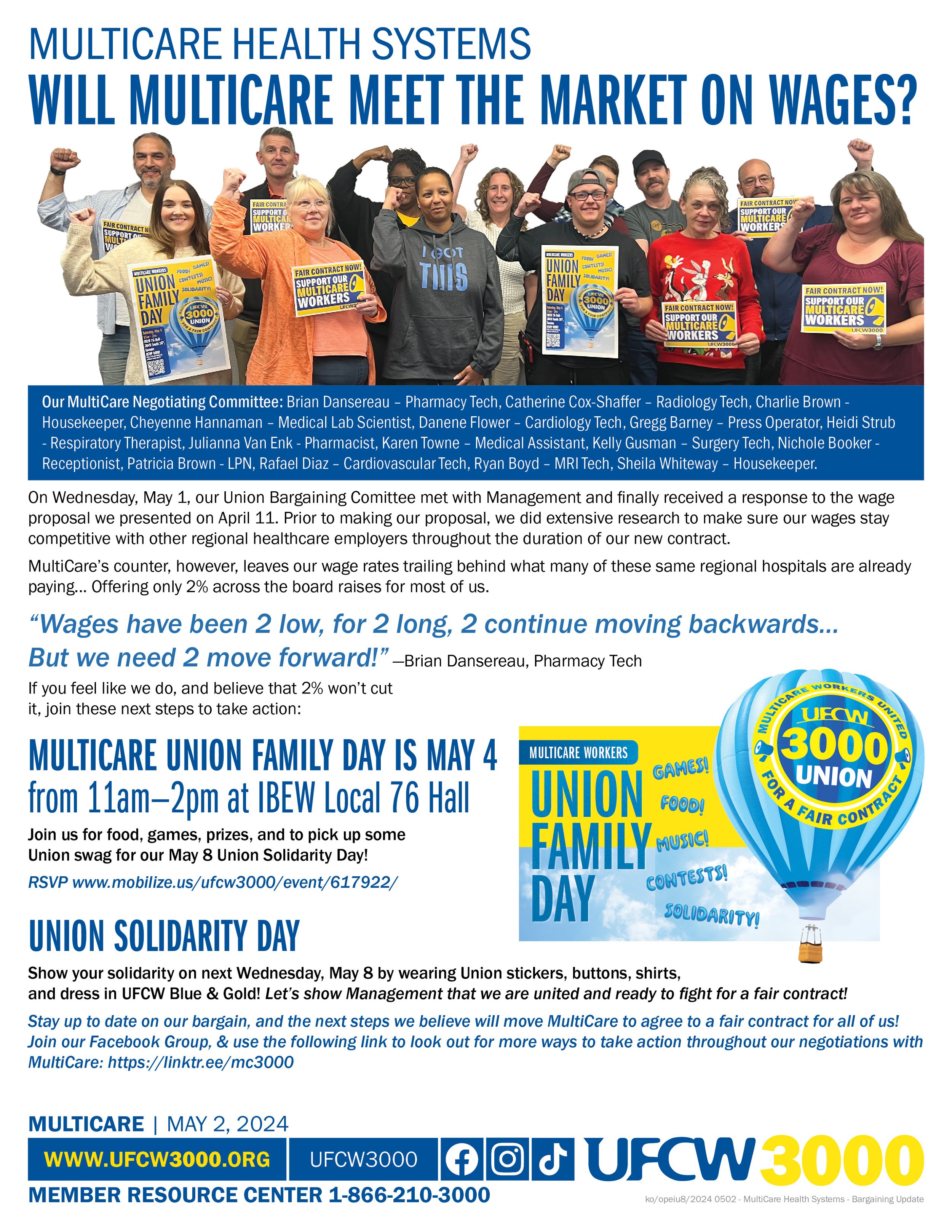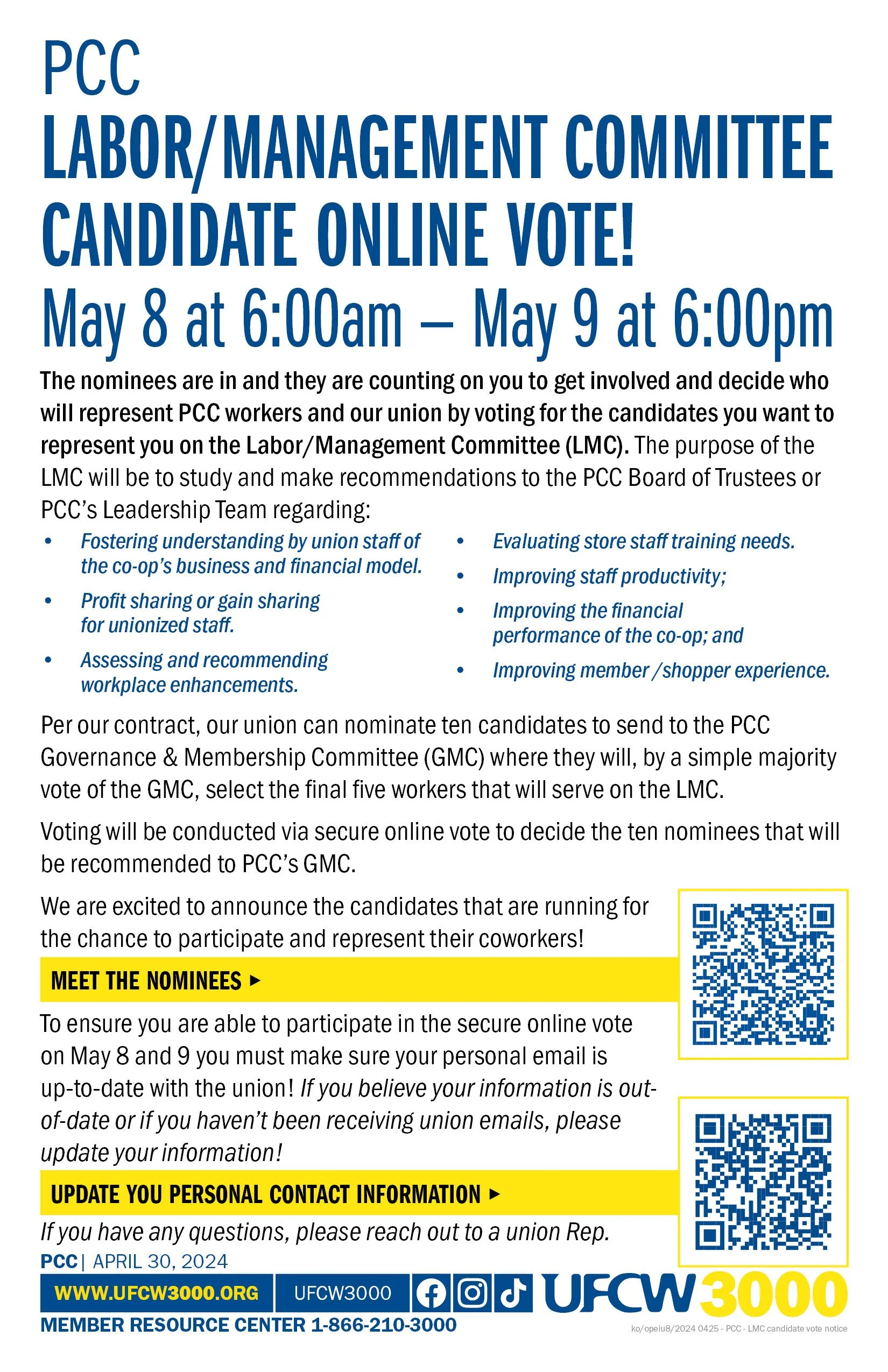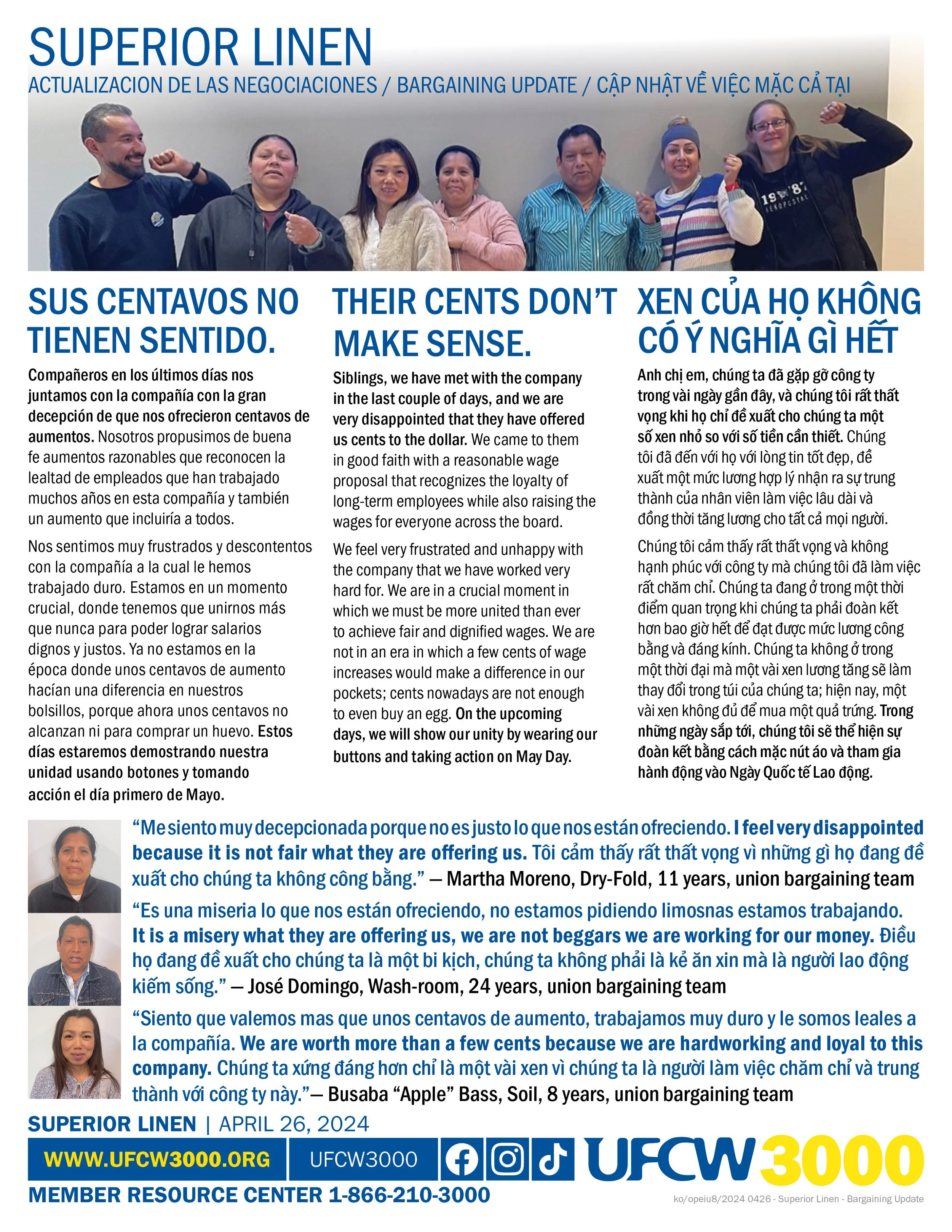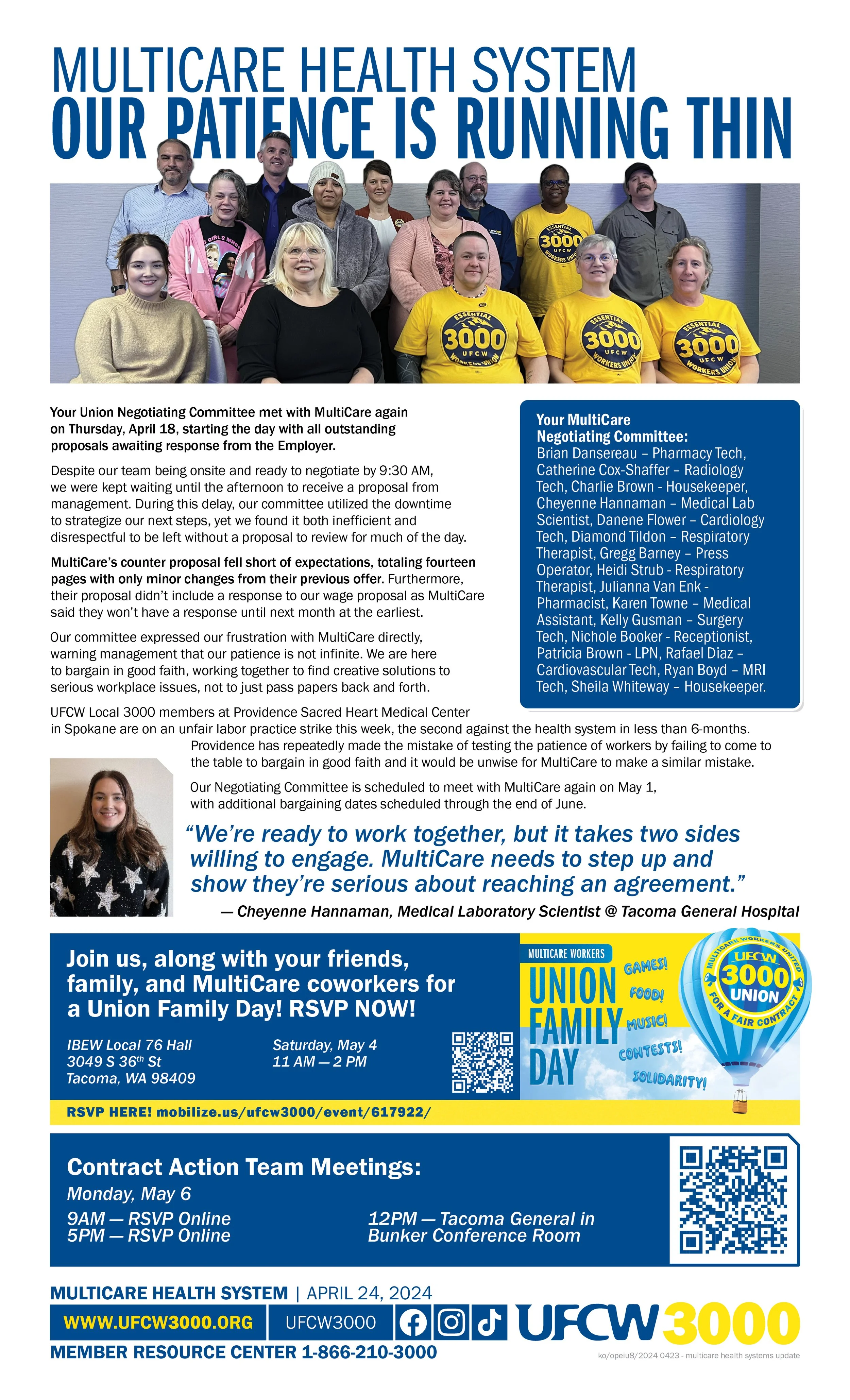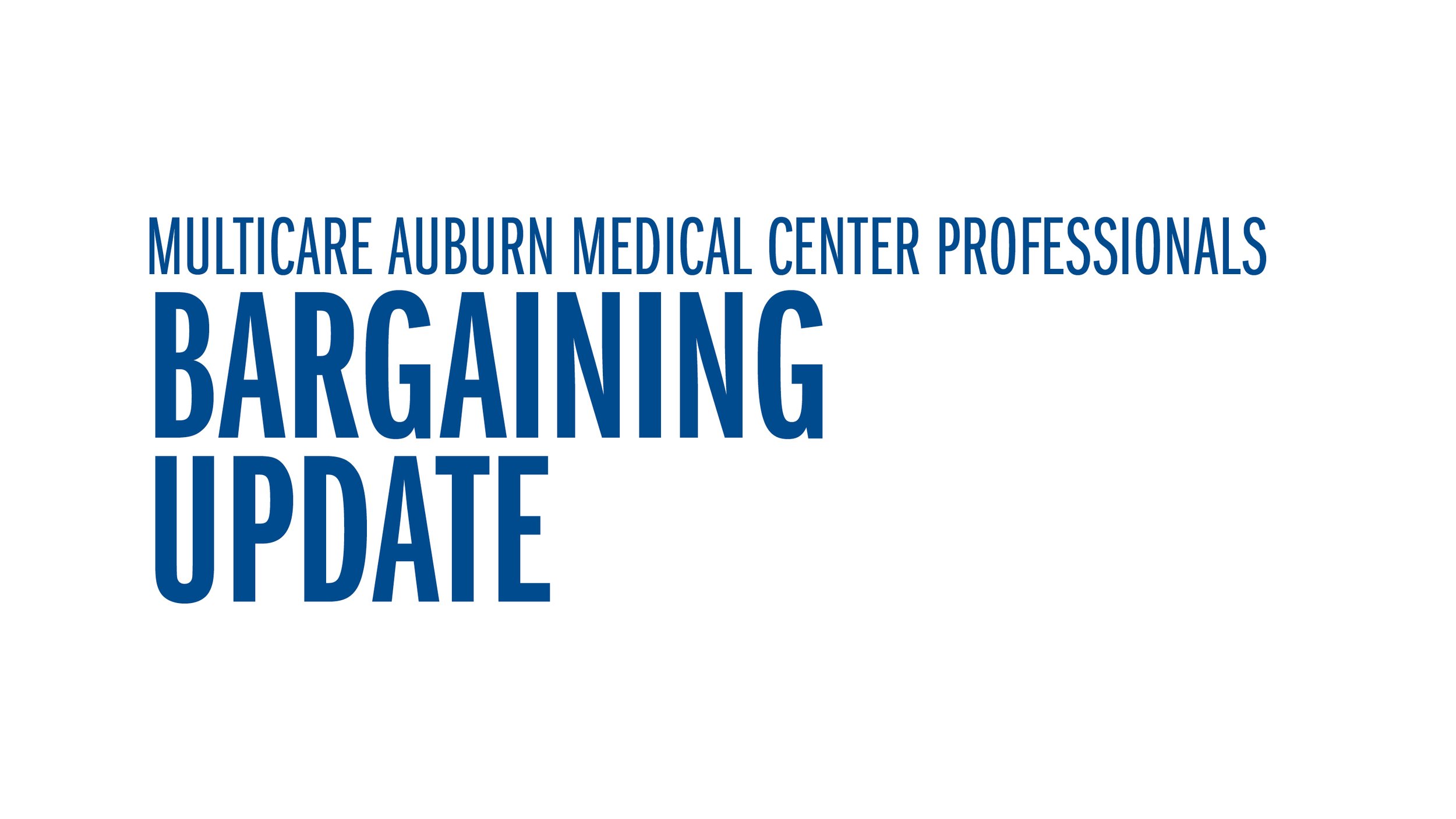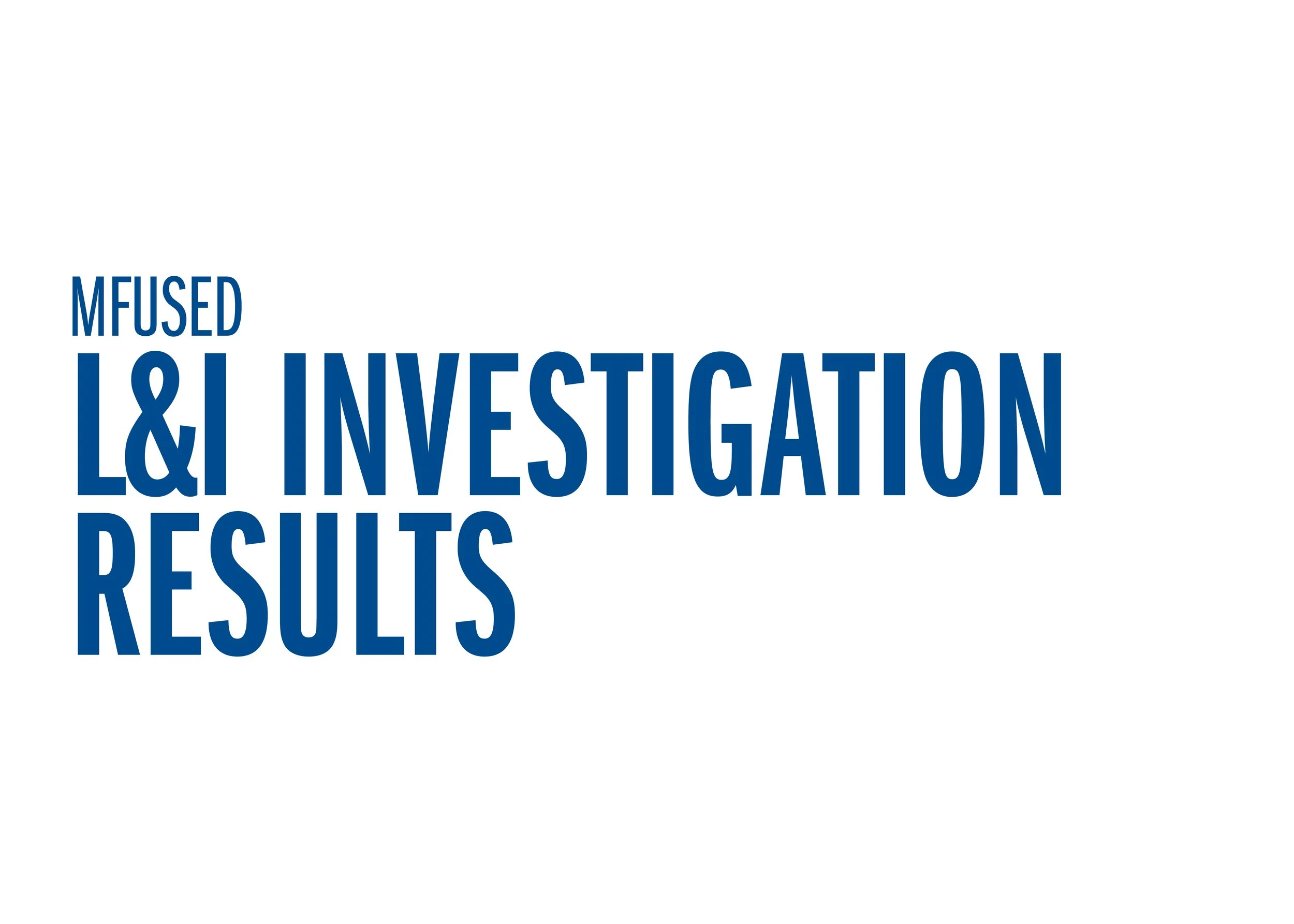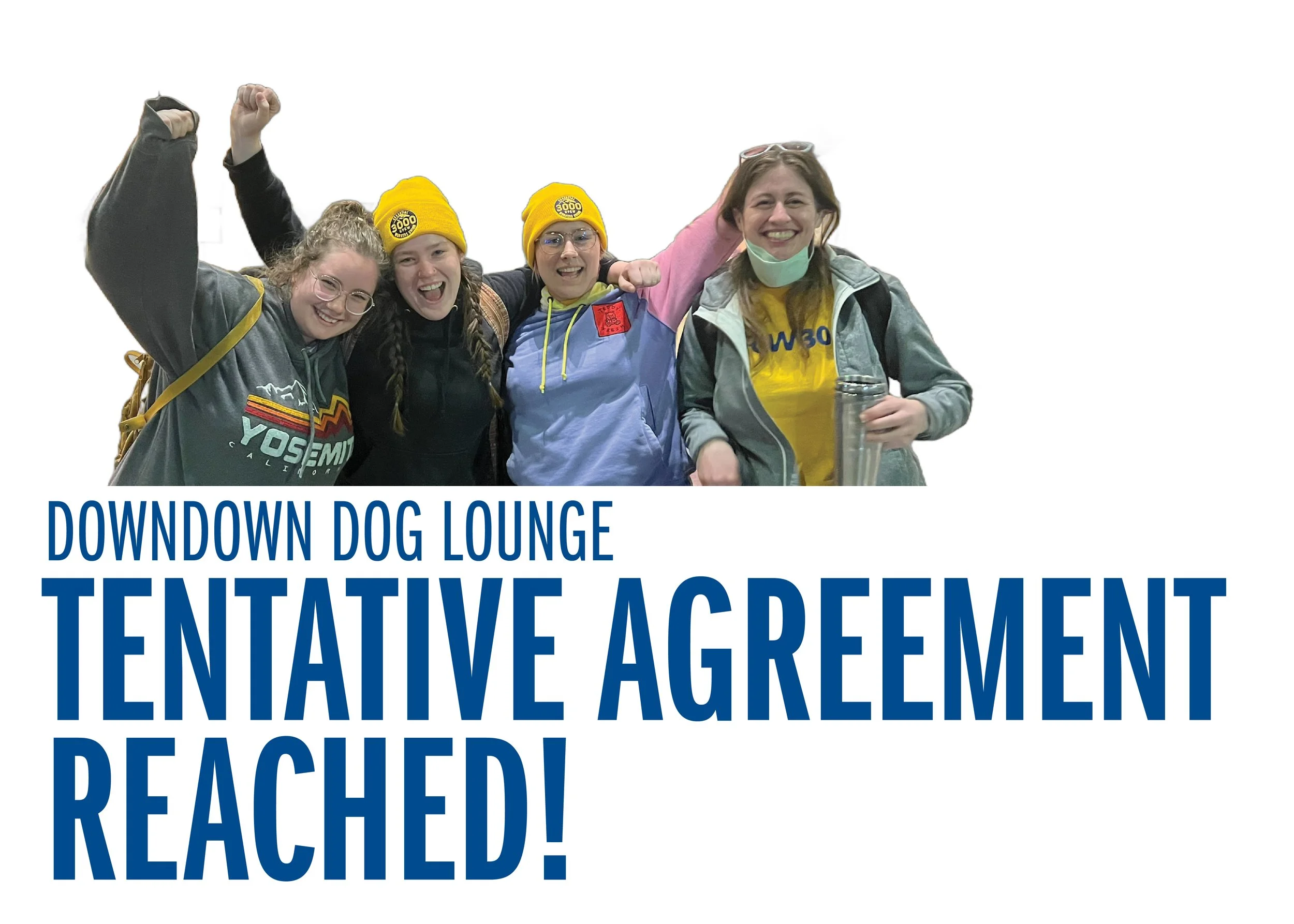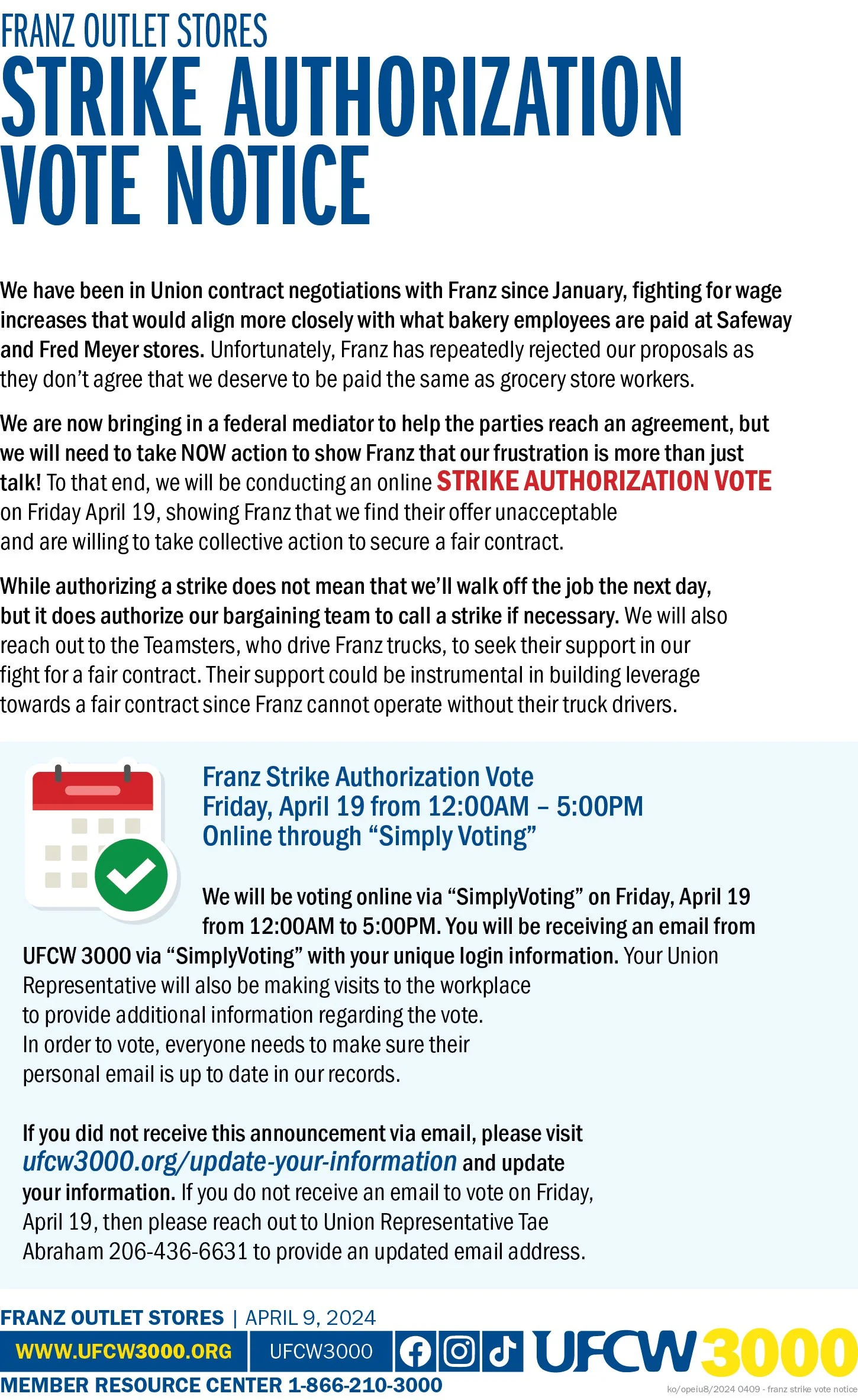L&I's Updated COVID-19 Safety Requirements for Employers as Washington Reopens
/Washington State Department of Labor & Industries released updated requirements for Washington employers on June 30, 2021, recognizing the new phase of reopening we are in after the COVID-19 pandemic. If your employer is not following the state requirements for COVID safety in your workplace, talk to your Shop Steward or Union Rep right away, or submit a safety report with your name, workplace, contact information, and description of the safety issue to safetyreport@ufcw21.org.
Updated COVID-19 requirements for employers as Washington state reopens
Businesses in Washington state are able to open at full capacity and have fewer requirements to follow to protect employees from COVID-19.
Both OSHA and L&I continue to recognize COVID-19 as a workplace hazard for unvaccinated individuals. Employers have an obligation to provide a safe and healthy workplace and assess the level of hazard to determine if additional steps should be taken to protect workers who are not fully vaccinated. Updated rules and guidance detail the changes employers need to know.
Employers must:
Ensure unvaccinated employees wear a mask while working indoors.
Verify vaccination status before lifting employee mask requirements, and be able to show the process used for verification.
Keep employees with possible or confirmed cases of COVID-19 from working around others.
Provide handwashing facilities and supplies.
Train employees to recognize and respond to workplace hazards, including COVID-19.
Assess recognized hazards, including COVID-19, as part of the ongoing requirement to provide a safe and healthful workplace and, where appropriate, take additional steps to protect unvaccinated employees.
Notify employees in writing within one business day if someone they had close contact with tests positive for COVID-19 (without disclosing the person’s identity).
Report COVID-19 outbreaks of 10 or more employees at workplaces or worksites with more than 50 employees to L&I within 24 hours.
Masks and face coverings
Employers must provide cloth face coverings or a more protective mask to employees, free of charge, when use of a mask is required.
Employers may still require or encourage mask use, regardless of employee vaccination status.
Employees have the right to wear a mask or other protective equipment, regardless of their vaccination status, as long as it doesn’t create safety issues.
Industries where masks are still required for all workers
Health care (long-term care, doctor’s offices, hospitals)
Public transportation (aircraft, trains, buses, road vehicles)
K-12 schools, childcare facilities and day camps in locations where children are or are expected to be present
Correctional facilities
Homeless shelters
Verifying worker vaccination status
Employers must be able to show the process used to verify employee vaccination status. They do not need to keep an actual copy of the employee’s vaccination records.
Acceptable types of verification include:
Vaccine card or photo of vaccine card.
Documentation from a health care provider.
State immunization information system record.
A hard copy or electronically signed self-attestation from the employee.
Resources
L&I’s COVID-19 guidance includes resources from the Centers for Disease Control (CDC), Department of Health (DOH) and U.S. Occupational Safety and Health Administration: www.Lni.wa.gov/CovidSafety.
DOH Secretary of Health Order: www.doh.wa.gov/Portals/1/Documents/1600/coronavirus/Secretary_of_Health_Order_20-03_Statewide_Face_Coverings.pdf




